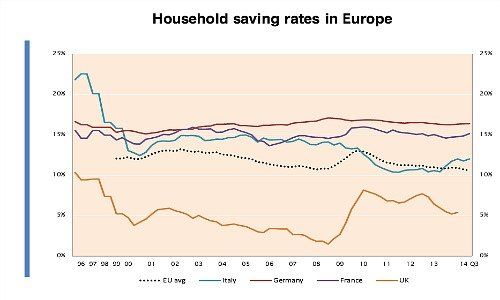UBS isn't the only Swiss bank extending its reach in the Italian wealth management market. A string of rivals is also trying to secure a piece of the business.
UBS in the past years focussed on growth based on its own resources, recovering as it was from the near-collapse in the financial crisis. On Tuesday, it sprang a surprise, announcing the acquisition of the Italian wealth management unit of Santander, the Spanish banking giant. UBS didn't say how much it paid for the business.
Santander's Italian business, which is based in Milan, specializes in banking with wealthy private clients and families and has 2.7 billion euros in assets under management.
The Italian wealth management market is attracting other Swiss banks as well. Bank Julius Baer on Monday said it increased its stake in Kairos, an Italian wealth manager, to 80 percent from 19.9 percent. The Zurich-based private bank considers a stock exchange listing for a minority stake at a later stage.
Since the start of the partnership of Kairos and Julius Baer in 2013, the Italian firm almost doubled assets under management to 8 billion euros.
Vontobel, Rothschild, Syz
Vontobel, another Zurich-based private bank, in September 2015 bought Finter Bank from Holding Italmobiliare. Vontobel Chief Executive Zeno Staub said at the time: «We see great potential in the Italian market for private clients and are convinced that the acquisition will create the perfect conditions for a further expansion of our focus market Italy.»
Not to be outdone by Baer and Vontobel, Rothschild Bank CEO Veit de Maddalena recently told finews.ch that Italy was a one of the priority markets of the bank, which has its headquarters in Zurich too. De Maddalena aims for net new money growth of 8 percent year-on-year. The bank opened a branch in Milan recently to be closer to its customers.
Economic Recovery
Syz banking group has been active in Milan for two and a half years and acquired the majority of Banca Albertini Syz & Co.
The string of Swiss banks expanding in the country's southernmost neighbor simultaneously obviously isn't down to chance:
- Numerous Italian investors pulled out of the financial market after the dotcom bubble burst. With the consequence that several financial companies closed shops. Foreign banks stepped in and increased their market share through acquisitions.
- Record low interest rates affected asset allocation in Italy too. Private and institutional investors increasingly favor funds according to analysts at Lipper. Rising sales of funds are a sign of investors' trust in the Italian financial market.
- Financial services companies see an enormous potential in the pension fund industry. According to the «Financial Times» (by subscription only), 3 percent of Italian invest in a private pension fund, which compares with a European average of 33 percent.
- Italian citizens have higher savings than the average European – contrary perhaps to common belief.

- The number of «high-net-worth-individuals», wealthy people, is rising in the country of Ferrari cars and Gucci handbags. The ratio will likely rise further as the economy is recovering. The «Italy Wealth Report 2015» suggests the number of wealthy will rise 20 percent within four years.
This was one of the reasons why Credit Suisse sold its affluent-business to Banca Generali in 2014 and instead focuses on very rich people.


































